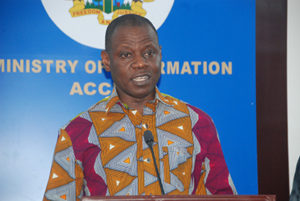Let us support midwives to achieve SGDs – Dr Kuma-Aboagye

Dr Patrick Kuma-Aboagye, Director-General, Ghana Health Service (GHS), has called for support for midwives in Ghana to improve the quality of their delivery.
He also called on the general public to come together to work with the health sector and the midwives in Ghana to ensure quality healthcare delivery.
Dr. Kuma-Aboagye stated that the year 2030 was only seven years away for achieving the Sustainable Development Goals and that if midwives were supported, it would be possible to change the narrative towards quality improvements.
Dr Aboagye made the call in a speech read on his behalf at a stakeholder’s consultative meeting on the theme: “Leaving no Woman and Newborn Behind: Midwives’ Advocacy Agenda Towards Quality Care.”
The programme was organised by the Centre for Health Development and Research (CEHDAR), an NGO, in collaboration with the Ministry of Health, GHS, and the White Ribbon Alliance, a global advocacy network for women.
It was to deliberate on Midwifery-related issues and the policy agenda based on the findings from the Midwives’ survey conducted in Ghana from August to mid-October 2021.
Dr Kuma-Aboagye said Midwifery was an ancient profession that began during biblical times, where the Matriarchs, Shiphrah, and Puah saved hundreds of Israelite babies from death.
He stated that midwives in Ghana were recognised for their life-saving roles and thanked them for all their efforts in the past and their commitment to do more in the future.
“Today, we have thousands of midwives graduating from many institutions ready to impact our maternal and newborn indices to achieve the SGDs,” Dr. Kuma-Aboagye said.
He added that, “all countries also aim to reduce neonatal mortality to at least as low as 12 per 1,000 live births and under-5 mortality to at least as low as 25 per 1,000 live births by 2030.”
Dr. Kuma-Aboagye acknowledged the majority of midwives’ call for better service conditions, quality health care with appropriate technology, professional international exchange programs, and early posting on completion of education to improve the profession.
Dr Jemimah Dennis-Antwi, the Chief Executive Officer, CEHDAR, said the call for action for the “Midwives Voices: Midwives Demand” advocacy campaign was born out of the outputs of a global survey by WRA in 2019 where over one million women from 114 countries made their voices heard through the “What-Women-Want” campaign.
Dr Dennis-Antwi said since 2021 a survey had been replicated across the 16 regions of Ghana, covering over 10,900 practising and student midwives from educational institutions, teaching hospitals, and Ghana Health Service facilities.
She said the findings of the survey reflected a wide array of needs, which were paraded with four priorities emerging as the topmost.
They are the need for good conditions of service for midwives in rural postings to live and work, adequate logistics and supplies, functional modern technology to aid in the provision of quality care, intrinsic and extrinsic motivation to practise midwifery for maternal and newborn health improvements and quality, and higher and diversified education for career advancement.
Dr Dennis-Antwi said evidence from many studies had shown that where a midwife was well-trained, regulated, resourced, and supported, she was able to address over 80 percent of the pregnancy-related complications that arise.
Dr Elizabeth Juma-Bio, a Representative from the World Health Organization, said the 72nd World Health Assembly designated 2020 as the International Year of the Nurse and the Midwife to celebrate the accomplishments and importance of nurses and midwives in providing care.
She said in the African Region, the last five years had witnessed the most improvements in the density of nurses and Midwives, with 34 countries, equivalent to 73 percent, showing a positive trajectory.
Dr Juma-Bio said Algeria, the DR Congo, Ethiopia, Ghana, and South Africa accounted for nearly 66 percent of the headcount of nurses and midwives in the African Region.
Source: GNA
